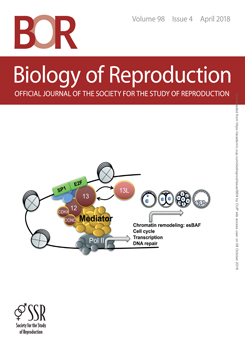Porcine parvovirus (PPV) is a major virus that leads to fetal death in swine. However, the effects of PPV infection on sows are poorly understood. The aim of this study was to investigate the effects of PPV on porcine steroidogenic luteal cells (SLCs) survival and functions and underlying mechanisms. In vivo experiment results showed that artificial infection of PPV significantly reduced the concentration of serum progesterone and induced histopathological lesions and SLCs apoptosis in porcine corpora luteum. In in vitro cultured primary porcine SLCs, PPV could infect and replicate in SLCs and induced SLCs apoptosis through mitochondria, but not the death receptor, mediated apoptosis pathway. Meanwhile, PPV infection also decreased progesterone production in SLCs. Moreover, PPV infection could increase active p53 transcriptional activity and protein expression as well as promoting p53 translocation to nucleus. Using the p53-specific pharmacological inhibitor (pifithrin-α) and siRNA could partially attenuate PPV-induced Bax upregulation, caspase-3 activation, apoptosis, and the reduction of progesterone production in primary porcine SLCs. Furthermore, the phosphorylation of p38 mitogen-activated protein kinase (MAPK) was also increased in PPV-infected SLCs. Pretreatment with p38 MAPK inhibitor (SB203580) suppressed PPV-induced p53 accumulation and translocation, SLCs apoptosis, and progesterone production reduction. In summary, these findings indicate that PPV could induce SLCs apoptosis and a decrease of progesterone production in vivo and in vitro via p38 MAPK signaling and p53-dependent mitochondrial pathway, which provides the potential clinical therapy methods for PPV infection.
Summary Sentence
Porcine parvovirus induced porcine steroidogenesis luteal cells apoptosis through the activation of p38MAPK, p53, andmitochondria-mediated death pathway, resulting in a decrease of progesterone production in vivo and in vitro.





